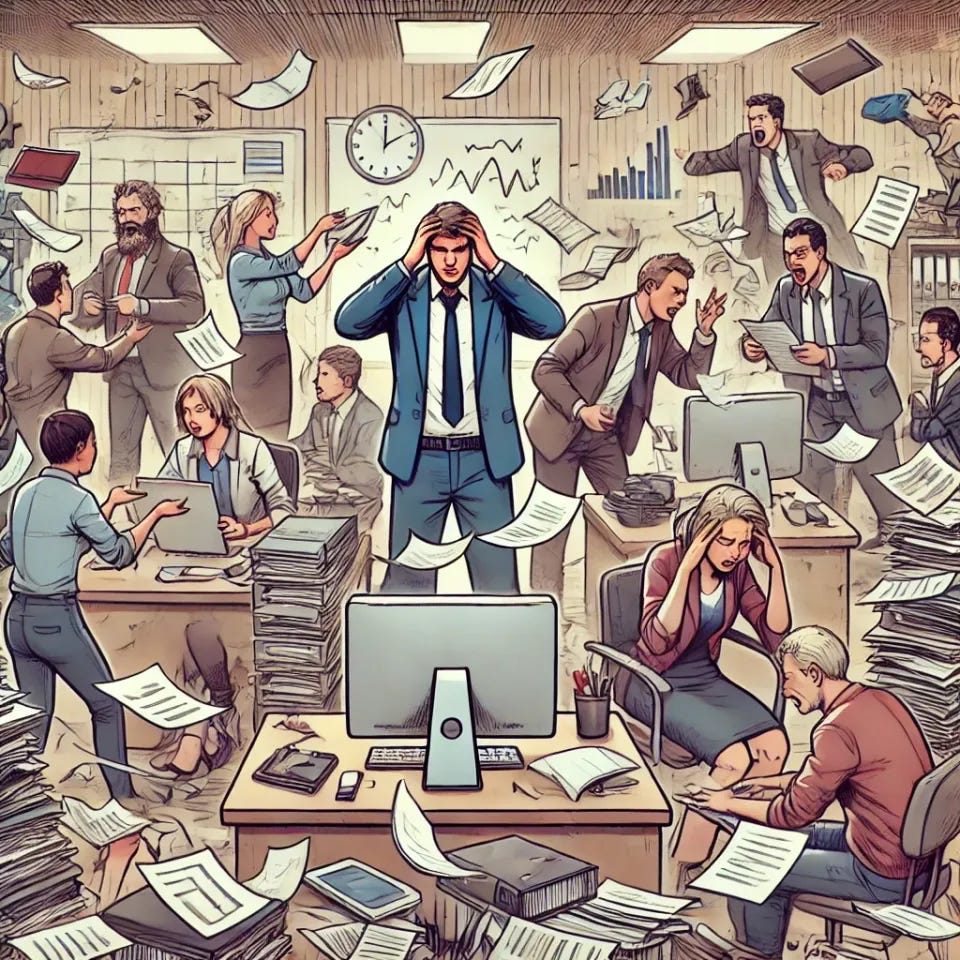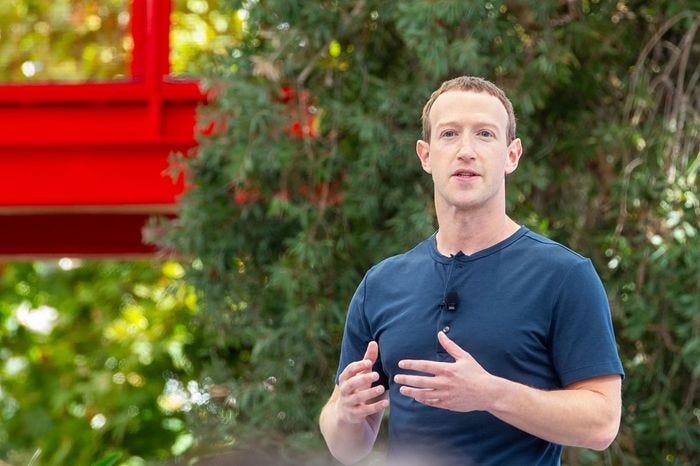AI: Prioritizing OpenAI's challenging opportunities. RTZ #441
...balancing internal dynamics with external imperatives
For both individuals and organizations, maintaining priorities at times of growing pains is THE key challenge in their lives.
OpenAI, the seminal company that kicked off this version of the AI Tech Wave seems to be experiencing aftershocks of its dramatic events of last November. That was the ‘Black Swan’ event that saw its founder/CEO Sam Altman fired by its non-profit board of directors, with the help of co-founder Ilya Sutskever, and then reinstated.
Yesterday saw the other key of eleven co-founders, Greg Brockman, the President, take a ‘sabbatical’ until next year, along with the departures of two other key founder/employees. The Information outlines it in “Trio of OpenAI Leaders Depart, Take Leave of Absence”:
“Greg Brockman, OpenAI’s president and one of 11 cofounders of the artificial intelligence firm, is taking an extended leave of absence. Another cofounder and key leader, John Schulman, has decamped to Anthropic, a fierce rival founded by ex-OpenAI researchers. And Peter Deng, a product leader who joined the company last year after leading products at Meta Platforms, Uber and Airtable, has also left, according to a person with direct knowledge of the moves.”
“The previously unreported leave of absence and departures appear to be unrelated to one another but show that the company’s leadership has yet to stabilize following the firing and rehiring of CEO Sam Altman in November.”
“Brockman held a critical role, turning AI researchers’ breakthroughs into large-scale AI models and products such as ChatGPT. He has also been an important ally to Altman, including during Altman’s fight to return to the company. Brockman told staff he planned to return after his extended vacation. Late Monday, he said on X he would be away through the end of the year.”
“Schulman helps lead a process known as post-training, when the company refines large language models that power ChatGPT and other products. He also recently took over the remnants of a safety team known as superalignment, focused on preventing the AI from causing societal harm.”
“The moves come during a time of business momentum, likely significant losses, and periodic personnel changes.”
It’s not unusual for tech companies have growing pains as well as turnover in its founders in its early years. Recent examples include Facebook long before it was Meta, Tesla, and others. But as tech observer M.G. Siegler notes in “OpenAI Generates more Turmoil”, the company for now seems to be breaking new ground:
“A lot of [OpenAI’s turmoil] would seem to stem from its inception as a non-profit, which now seems more problematic with each passing day. The company's blog post lists 7 "founding members" alongside Brockman (CTO) and Sutskever (Research Director): Trevor Blackwell, Vicki Cheung, Andrej Karpathy, Durk Kingma, John Schulman, Pamela Vagata, and Wojciech Zaremba. And the two co-chairs: Elon Musk and Altman.”
I’ve discussed the long and winding history of the OpenAI’s founding, going back to a 2015 all-night discussion between Google Founder Larry Page, and Tesla uber-founder Elon Musk. It’s all worth understanding to see the ripples and aftershocks that continue to reverberate in the key founder/personnel changes at OpenAI.
At the very time when the company continues to lead the AI Tech Wave, with an impressive array of products and services.
Not to mention of course, the imminent arrival of its much anticipated LLM AI GPT-5, which promises to reset the LLM AI race over the next few years.
More importantly, GPT-5 is the much needed demonstration of the AI Scaling laws upon which the multi-hundred billion AI capex race is underway amongst the ‘Magnificent 7’ big tech companies.
Without that next data point of the AI Scaling laws, more doubts could emerge on the assumptions of the current, ever-escalating AI capex investment wave. Eyes could shift to Meta which is already working on its next-gen open source Llama 4, which is reportedly 10x more compute intensive than its impressive Llama 3.1 405 billion parameter model. Or of course Anthropic’s next iteration of its Claude 3.5, or the next Grok from Elon Musk/xAI.
For all those reasons and more, OpenAI needs to be able to walk and chew gum at the same time. Balance its internal founder/people dynamics, while keeping a laser focus on its industry-leading rollout of key AI innovations, products and services.
Something all tech startups have had to do across previous tech waves. Only OpenAI’s task list is many times longer and exponentially more complex, due to the nascent nature of AI technologies, and infrastructure Scaling imperatives.
So OpenAI needs to navigate internal dynamics, and prioritize the external commercial AI opportunities. Available to them now at a unique time and place. So many are rooting for them to succeed. Stay tuned.
(NOTE: The discussions here are for information purposes only, and not meant as investment advice at any time. Thanks for joining us here)







